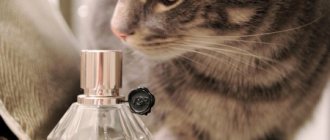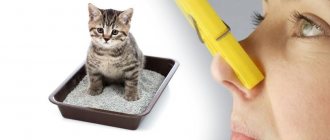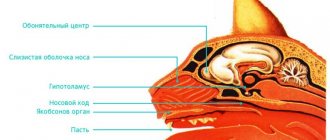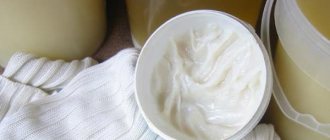It is customary to remember about odors that dogs cannot tolerate when the pet commits another misdeed, which the owner cannot influence in any way. Whether it’s dug up flower beds in a country house or a marked corner in an apartment, powerlessness prompts you to look for workarounds to influence the animal. Despite the fact that the olfactory system of dogs is much coarser than that of a cat, it is still superior to humans by many times. Dog noses also cannot tolerate certain categories of odors that do not cause much discomfort to humans. We’ll talk further about what smells dogs don’t like and how to use them without harming the animal’s health.
What smells do dogs not like?
No. 1. Hot peppers
Hot peppers such as jalapeno peppers, chili peppers, and poblano peppers are natural dog repellents. They are effective for one simple reason: they are spices.
The tingling sensation in the tongue and nose is completely foreign to dogs and is not something they like. As a result, they move as far away from the place where they found the pepper as possible.
In many cases, simply sprinkling ground pepper on the area where the dog is pooping is enough to repel the dog.
While we can't always smell a spice right away, the strength of your pup's olfactory senses ensures that they will sense it.
The spiciness of peppers comes from chemical compounds called capsaicinoids. You can easily create a repellent spray by crushing pepper and mixing it with a little water.
It is important to be careful when doing this.
Dogs are very sensitive to spices and may sneeze. In severe cases, they may even suffer from respiratory problems.
Never feed your dog hot peppers or spray their fur with them.
Instead, you can use a spray to keep your puppy away from plants and certain parts of the yard that are toxic to dogs.
If your dog is particularly sensitive, you can create a pepper spray that has no seeds or white veins.
Interesting on the topic: Can dogs eat sweet bell peppers?
You can also use ready-made preparations with a smell that dogs do not like:
Beaphar Stop it Dog spray for repelling dogs
Fragrances that are dangerous to the sense of smell
Another category is fragrances that are dangerous to the sense of smell. They cause persistent disgust in the pet, and can also cause an allergy attack, poisoning of the animal, irritation and damage to the respiratory tract.
The smell of chlorine, chlorine-containing bleaches and cleaning products, and household chemicals have a detrimental effect on dogs’ olfactory abilities. When cleaning the house using such disinfectants, it is better to take your pet for a walk until the room is ventilated.
This rule must also be observed in relation to solvents, thinners, acetone, and paints and varnishes. Owners of four-legged friends should not forget to take their pet out of the room during the next manicure session, as well as when spraying hair styling products in the air. After all, permanent coating remover and nail polishes are no less toxic.
A popular and effective remedy in the fight against moths, naphthalene emits an unpleasant aroma that repels not only insects, but also dogs.
It is known that four-legged friends are also “not indifferent” to the smell of metal. An animal enclosure should be built using as little metal structures as possible; an iron roof is especially undesirable.
It is obvious that the listed categories of substances should under no circumstances be used by the owner in the process of educating and correcting unwanted behavior.
No. 2. Ground spices
Your dog's reaction to ground spices is very similar to how your dog reacts to hot peppers.
Ground chili powder, cayenne pepper, ground mustard and more are great for keeping your dog away from areas you want to keep away from canine mischief.
Many ground pepper spices are used in commercial dog repellents due to their effectiveness. If you want to try the spices, you can simply sprinkle them on part of your yard.
Again, never blow it in your dog's face. Fine particles can easily get into your dog's nose and cause burning and irritation.
How to use "aromatherapy"
Before using aromatic substances in any form, you must thoroughly clean the surface without using detergents, since soaps and cleaning powders contain fragrances and can kill the odor used to repel dogs.
How to stop a dog from crapping using repellent odors
When using natural scents, it is enough to place fragrant plants in the places that the dog has chosen.
Synthetic fragrances are dissolved in water in small quantities. This solution is applied to the surfaces of furniture, poured onto the lawn, or washed on the floor. The main thing is not to overdo it with the amount of substance, otherwise there is a risk of burning your pet’s sinuses.
Store-bought products are usually available in the form of sprays. It is enough to spray the contents of the can on the selected area from a distance of 30 cm.
It is necessary to renew repellents for dogs to prevent them from pooping every day until the dog learns that he needs to relieve himself in another place.
How to scare dogs away: effective methods
It is most effective to influence the behavior of a pet through the authority of the owner. If the dog was raised correctly from an early age, he will listen and follow commands.
When it comes to other people's dogs, everything is much more complicated. But there are still several techniques that can scare away unfamiliar dogs from your territory. Here are some tips:
- fence the area with a high fence and string barbed wire along the bottom;
- train your own dog (if you have one) to bark at the sight of strangers;
- use repellent scents by watering the area with them or placing moistened cotton swabs around the perimeter;
- install a stationary ultrasonic emitter;
- install an automatic water sprinkler;
- call the dog catching service (if the dog is homeless).
Important! You should not feed unfamiliar animals on your territory, otherwise they will come often.
How to stop dogs from pooping on your lawn
If the situation repeats itself over and over again, you need to understand the reasons why the dog chose this particular place. The dog may have health problems or a stressful situation. Then you should immediately contact your veterinarian. When the reason is different, you need to try to correct the animal’s habits through educational measures.
If unsuccessful, the question arises: how to scare the dog away so that it does not shit on the lawn. You can plant plants with a strong aroma (jasmine or lavender) in this area. Hellebore also effectively affects a dog's sense of smell, but it is poisonous and can pose a real threat not only to animals.
There are special signs on public lawns indicating that dogs are prohibited.
An automatic watering system with water spraying will also help scare away uninvited guests. If you install motion sensors, watering will turn on when a potential pest enters the area of influence. But at the same time, water costs will increase significantly, and there is a risk of flooding the area.
How to scare away from the garden
Most dogs are trained to pee and walk around outside. But they do not distinguish where exactly they can relieve themselves, and where the owner grows his crops. First, you should patiently explain to your pet the rules of behavior on the site and try to control his behavior: pet him and praise him for obedience and not shout if he makes a mistake.
Scaring will be needed if the dog has not learned its lesson. The following techniques will help protect flower beds and beds:
- change of fertilizers. The smell of some organic compounds may attract your pet. It's worth trying a different mixture. Often, dogs are attracted to the aromas of blood, bones with the remains of meat and fish. Therefore, it is recommended to use fertilizers of plant origin;
- use of soda. Twice a week you should water restricted areas with a soda solution (1 cup of baking soda per 1 liter of water). In addition to repelling dogs, baking soda will protect plants from the harmful effects of harmful substances contained in dog urine;
- planting plants. In addition to fragrant plants, thorny bushes can be planted along the perimeter of the protected area, through which it will be difficult for dogs to get through;
- establishing contacts with neighbors. If a neighbor’s dog comes to the property, it’s worth talking to its owners and explaining the situation.
Knowing what smell dogs don’t like, you can correct the animals’ unwanted behavior. The above recommendations will help you deal with this. The main thing is to act in moderation so as not to harm the dog.
The main property with which people identify a dog is its phenomenal sense of smell. The hypersensitive receptors in these pets allow them to detect odors about 400 times better than humans.
The olfactory function in dogs is provided by more than 200 million cellular structures responsible for capturing and recognizing various odors. This is due to the dog’s subtle sense of the most incredible odors, which sometimes a person does not feel at all.
Some odors are so unpleasant for dogs that they cause aggression and can provoke severe emotional irritation in the animal.
Every owner should know what odors are unpleasant for dogs, so that in the future they can try to minimize their number in the room where the pet is located, protecting its nervous system and sense of smell.
No. 3. Citrus
Citrus scents can be found in a wide variety of household products. It is used in cleaning products, room deodorizers, candles and more.
This scent is pleasant to us, but dogs absolutely despise it.
The problem with citrus fruits is that the oils in the skin can irritate your pup's respiratory tract.
Citrus oils are commonly used in products designed to prevent dogs from urinating in certain areas.
Instead of shelling out a lot of money, you can easily make the product yourself.
All it requires is the peel of oranges, lemons, limes or grapefruits. Simply place the skins on the ground and your dog will avoid the area.
You can also use fruit juice to create a spray.
If you want something more powerful, citrus essential oils are also available. They are very concentrated, so you can dilute the oils with a little water before spraying them around your home or yard.
Beaphar Stop it Dog spray for repelling dogs
Repellent odors
Smells that cause disgust in dogs can be divided into several categories. These include natural scents, artificial scents and special repellents designed to keep dogs away from restricted areas. Let's talk about each of the categories in more detail.
Natural smells
Natural odors include the odors of fruits, vegetables and plants, which do not require complex manipulations to obtain. In most cases, it is enough to place strong-smelling objects around the desired location to achieve the effect.
Natural odors have a gentler effect on your pet’s sense of smell, unlike chemicals.
Pepper
Pepper is a universal “repellent” due to the intensity of the aroma it emits. Both the negative and positive sides of pepper converge in the effectiveness of this product. Its aggressive influence on the olfactory system imposes certain prohibitions on its use: it is undesirable to resort to it when training puppies or hunting breeds that have a more sensitive sense of smell.
Pepper repels dogs both in its original form and in powder form.
Cayenne pepper scattered around the perimeter of the flowerbed will scare away domestic and stray dogs from it and ensure the safety of the plants. The dose of the product is determined by the size of the treated area. The main disadvantage of this method of dealing with uninvited guests is the need to re-treat the area after each rain.
Pepper can also be used in the form of a crushed pod, wrapping the product particles in gauze and spreading it around the house or around the dacha area. Shoes rubbed with such a pod discourage the puppy's interest in them after the first acquaintance.
You can rub a decoction of pepper on plants and objects without worrying about them spoiling.
Treating plants with a decoction with the addition of pepper will be effective. To prepare such a decoction, just dissolve one teaspoon of red pepper in a glass of water and boil the resulting liquid.
Makhorka
This type of tobacco may be known to many thanks to movies in which criminals hid their tracks using shag. On animals, shag produces a negative effect, prompting them to move away from the territory it has marked. Finding shag can be not so easy, so tobacco from ordinary cigarettes may be suitable as an analogue.
Thanks to its pungent odor, shag repels any animals with sensitive noses.
Shag can be used in dry form - just sprinkle it on an object or area that is forbidden to the dog. It is also possible to brew this type of tobacco and, if desired, mix it with other caustic ingredients (such as ground pepper) to enhance the effect.
Citrus
The smell emitted by citrus fruits is the worst enemy of both cats and dogs. You can use citrus fruits in any way: by laying out orange slices or orange zest, or by rubbing the fruit on surfaces that dogs cannot access. It is worth keeping in mind that hostility to citrus fruits is individual in nature.
Grapefruit peel is a real olfactory bomb in the fight against animal curiosity
The most aggressive fruit is grapefruit; oranges and tangerines have less impact on animals and may even attract them. The most effective is citrus essential oil, which can be purchased at any pharmacy and soaked into surfaces.
Hellebore
This remedy is little known in wide circles, but its alternative name “volkogon” speaks for itself. Hellebore does not grow in all regions of Russia and is currently popular in the taiga. A few stems of this plant are enough to discourage a dog from the forbidden area once and for all.
Due to the toxicity of this plant, it must be used with knowledge of the possible consequences.
The main disadvantages of hellebore are the difficulty in acquiring the plant and its toxicity. Unlike citrus fruits, shag and pepper, hellebore is fraught with real danger and can be fatal if ingested by a pet.
Large predator
Of course, supplying a garden flowerbed with bears to scare away dogs would be a completely pointless undertaking. However, formally, it is the smell of predators that gives an unambiguous command to the dog to retreat and hide in a safe place.
Animals smell the scents of their relatives over long distances and avoid encounters with strong individuals.
Probably, in the not so distant future, the odors of large and dangerous predators will be successfully synthesized and will fit into a compact bottle. In this case, this particular scent will be one of the most effective.
Artificial smells
All artificially synthesized odors, one way or another, produce a depressing impression on animals, forcing them to stay away from the source of the aroma. You can verify this by spraying deodorant near the animal and observing its reaction. Most likely, the dog will wrinkle and run to another corner.
Any sprayed substances cause dogs to want to move away from the source of the smell.
What can we say about more aggressive chemicals such as acetone or calcium carbide. Chemical odors should be used with extreme caution so as not to burn the animal’s sinuses or cause an acute attack of allergies.
Calcium carbide
If desired, calcium carbide can be purchased; it is sold in kilograms. However, one can hardly find the use of this compound in everyday life. It is not poisonous, but it emits a noticeable aroma in any condition. The smell intensifies when water comes into contact with calcium carbide, becoming unpleasant not only for the animal, but also for humans.
Calcium carbide is practically not used at home because it can be harmful
Moreover, this substance tends to release alkali, which is harmful to both plants and floor coverings. It is unacceptable to leave calcium carbide in the presence of children, as it can cause skin irritation if handled carelessly.
Perfumery
Smells that please people often cause sharp rejection in pets. This is partly due to the alcohol found in most perfumes and antiperspirants, which dogs can barely tolerate. However, there are individuals that demonstrate striking indifference to both fragrances and alcohol base.
Despite the fact that perfumes have a rich aroma, dogs' reaction to them varies from person to person.
In addition to an unpredictable reaction to perfume, it is also possible for your pet to become accustomed to certain, even strong odors. Addiction occurs faster if the aroma of perfume is filled with positive associations with the owner. As an aside, it should be noted that many dogs are intolerant of mouthwash.
Volatile organic compounds
Dogs do not perceive odors well:
- Gasoline;
- Household chemicals;
- Solvents;
- Essential oils;
- Varnish;
- Vinegar.
Dogs share a dislike for volatile organic compounds with humans.
It is these substances that ideally fall into the VOC category. You can often notice a negative attitude of a dog towards a tipsy owner who is trying to pet the animal, sometimes even turning into aggression. It's all because of the smell of alcohol, which seems unbearable to the dog. The combination of an unpleasant odor and a beloved owner causes internal dissonance and causes the animal to experience double stress.
It is unlikely that any owner would dare to use gasoline or solvents at home, since the aromas from these products are harmful to all living beings, without exception. But vinegar or pure alcohol can be very useful in the fight against an intractable dog without causing poisoning or burns.
Alcohol is the least toxic volatile compound, but its duration of action is short
It is enough to moisten a cotton wool or swab in the chosen liquid and place it in the right place to shock the dog’s sense of smell. The only weak point of such products is their rapid evaporation. In this case, mothballs, which have a persistent aroma, can come to the rescue - a pleasant bonus of using them will be getting rid of moths along the way.
Video - Smells that turn off dogs
No. 4. Fresh herbs
Many dogs don't like fresh herbs like mint or rosemary. They have a very pungent aroma that dogs don't like. You can use this fact to your advantage and plan for fresh herbs in your garden.
You can also create a simple spray solution by soaking the grass in water to extract the oils.
Although most dogs cannot tolerate the smell of grass, some will have no problem with mint.
In fact, there are many mint-flavored treats that can help combat bad breath. Before you start purchasing mint products, see how your dog reacts to the smell and taste.
How to get rid of unwanted pets
A dog-repellent scent can be used against uninvited guests who wander onto your property, lawn or flowerbed. You need to know how to discourage dogs so that they don’t come back, but also not harm them. It is better to use natural repellents - lavender, vinegar, garlic, alcohol. You can turn on the ultrasonic repeller once. If dogs are aggressive, it is better to spray an aerosol.
Dog repellers have an unpleasant odor
A dog's sense of smell is famous for its keenness. The dog is able to distinguish all kinds of aromas. Unpleasant odors irritate the animal and cause it stress, so such “stinkers” should be used only as a last resort.
No. 5. Vinegar
Vinegar is a very versatile ingredient that is used in many home remedies. There are several different types of vinegar available on the market.
Some, like standard white vinegar, can be used to keep your dog and his urine away from furniture, corners, and your yard.
It is safe, non-toxic and relatively affordable. Just pour it into a spray bottle and get to work.
The downside of vinegar is that it really doesn't smell very good to us humans either. It is sour and very sharp. Although it reminds many of the smell of marinated kebab.
Beaphar Stop it Dog spray for repelling dogs
How to preserve your sense of smell and not harm your nervous system
It is not recommended to use repellent odors in dog training areas. Animals should be in a calm, balanced mood. This way they can be completely focused on training to follow commands. Smells that are unpleasant to dogs are a stronger irritant for them than any sounds or visual moments. In addition, it should not smell like a cat.
Dogs perceive metal smell negatively, so there should be few metal structures in the enclosure. In particular, you should avoid a metal roof. In an unsuitable house, the dog will look calm outwardly, but will be in a depressed state.
No. 6. Mothballs
These tiny white beads have a very distinct smell that you will immediately recognize if you have used them at some point in your life. They are designed to prevent moths from eating your clothes.
Mothballs act as a pesticide and deodorizer to control mold odors. Due to their chemical composition, moth balls are very dangerous for both dogs and humans.
If you plan to use mothballs to keep your dog out of the room, make sure the mothballs are securely attached. If your dog eats even one mothball, he will be at immediate risk of death.
To prevent problems from occurring, you can store mothballs out of reach or use a specially designed holder. As long as the strong smell of mothballs permeates the room, it will do its job.
Chemical
Dogs are wary of any strong or artificial odors, so almost all chemicals make them retreat. Surely you have noticed more than once how animals begin to avoid trees after applying whitewash.
Bleach is a powerful gas attack
Shaggy friends can't stand her smell. It is extremely rare to find pets that can easily tolerate the smell of chlorine. If there is a cat living in the house with a dog, we advise you to choose another option. The purr of bleach is exciting and can make you want to mark.
Carbide
Welding carbide is slightly inferior to the previous product. It is less odorous, but this can even be considered a plus. If the dog immediately understands what is required of it, why go to extreme measures? Please note that when carbide is mixed with water, a chemical reaction begins and an alkali is released. The latter can damage the coating or harm indoor plants.
Air freshener with citrus scent
A sensitive dog will simply leave the room when it smells it. The main disadvantage of the product is its fragility. The freshener disappears quickly.
Naphthalene
In some cases it makes sense to use naphthalene. It will save things not only from companion bites, but also from moths. The only drawback is the smell is too strong. Being in a room “scented” with mothballs will be difficult not only for a dog, but also for a person.
No. 7. Alcohol
Standard rubbing alcohol has an unpleasant odor to dogs. You can spray alcohol onto cotton balls and place them on the area where your dog is acting up.
The effectiveness of alcohol will depend entirely on its concentration. The higher the alcohol percentage, the stronger the smell.
As with any chemical, it is important to keep your dog safe. Never spray it on your dog. Many veterinarians do not even recommend rubbing alcohol on a dog's skin after an injury, so it is important to avoid any contact with the dog.
In addition, alcohol is highly flammable. Keep this in mind when placing alcohol-soaked cotton balls around your home.
Beaphar Stop it Dog spray for repelling dogs
TOP 10 best dog repellents
We've rounded up 10 products to help you protect your shoes, including the bike spray that the postal service has been using for 30 years, a can that hisses like a snake, state-of-the-art ultrasonic devices, and a device that makes an incredibly loud sound. To protect lawns, products are offered that affect the sense of smell and taste buds - in granules and in liquid form, as well as a sprinkler that solves the problem of unwanted visits from neighbor's dogs with the help of water.
No. 8. Household cleaning products
Has your dog ever left the room when you started cleaning your kitchen countertops or floors? It's not because they are so polite and appreciate your cleaning work.
This is because they absolutely hate the ingredients in regular household cleaning products.
Many products use chlorine or ammonia. Additionally, some have added citrus scents, making the smell worse for your pup.
Never use cleaning products as a direct repellent on your dog, especially if they contain strong chemicals such as ammonia.
Inhaling ammonia can cause burns and irritation to your dog's throat.
It is always recommended to keep your dog outside when you are cleaning an area they frequent. While it would be dangerous to use household cleaners to repel your puppy, you can simply keep the room clean.
For example, many owners don't want their dog to come into their bathroom. So they just clean it regularly. Once the strong fumes have subsided, your dog will not be in danger.
However, this small amount of odor will be enough to make them reluctant to enter the room.
Other repellents
In addition to exposure to odors, there are other methods of repelling dogs. In addition to the sense of smell, you can also influence the animal’s hearing through ultrasound, or even taste buds, which are very sensitive to unpleasant tastes.
For ultrasound to be effective, its frequency must be at least 21 kHz
Since the need to get rid of the dog’s annoying attention arises in different circumstances, the methods of dealing with animals should be different. We will talk further about alternative ways to scare off a dog and prohibit it from certain actions.
Table 1. Dog repellents
Grannick's Bitter Apple Spray | The composition of the spray is completely safe for dogs even if ingested. Bitters, water and twenty percent isopropyl alcohol make the spray effective in combating dogs' excessive attention to forbidden objects. To use this substance, just apply it to an object. Non-aggressive components allow the composition to be applied not only to shoes, but also to other more delicate surfaces. Some owners even apply it to their hands if necessary. Disadvantages include quick odor dissipation and ineffectiveness when used outdoors. |
HALT Dog Repellent Spray | This drug is suitable primarily for cyclists who are tired of the intrusive attention of dogs. The main component of the spray is capsaicin, which is extracted from peppers and has a sharp effect on the dog’s sense of smell. Since the composition is used in emergency situations, it must be directed directly at the four-legged pest to cause a quick reaction. When particles of the substance enter the dog’s nasal mucosa or oral cavity, the effect is achieved immediately. When spraying a substance, care must be taken to ensure that the person himself does not come into contact with the released stream. |
The Company of Animals Pet Corrector | This product is not widely used in household conditions, since its influence extends to the dog’s hearing. When you press the cap, a compressed gas is released from the cylinder, which in itself is completely neutral. The effect is exerted by the sound itself with which the gas is emitted. Remotely, this sound resembles the hiss of a goose or snake before an attack and informs the dog that danger is nearby. Most often, this drug is used when training a grumpy pet to discipline it. This method of control is not very effective against wild or aggressive dogs. |
Hoont Electronic Ultrasonic Handheld Dog Repellent | This device works using ultrasound, which is unrecognizable to humans, but has a negative effect on dogs. The product helps to instantly distract the dog from an unwanted action, but does not consolidate the result, since the dog does not associate ultrasound with a specific offense. Therefore, the device is more suitable for attracting individual attention. The device is completely safe and operates at a distance of up to 15 meters. Individual reactions to ultrasound should be taken into account - not all animals are sensitive to it. Some buyers noted the uselessness of the device, while others were satisfied with it |
Havahart Critter Ridder 3146 Animal Repellent | The repellent is intended for treating soil that the owner plans to protect from attacks by pets or stray animals. The mixture contains natural ingredients: pepper and capsaicin. The product is great not only for fighting dogs, but also cats, squirrels and other animals. Its advantage over ordinary ground pepper is its durability - the particles of the mixture continue to affect the pet’s sense of smell even after rain and do not require renewal for a whole month. However, plot owners have repeatedly noted the dubious effectiveness of the repellent and the frequent ignoring of it by pets when mastering the beds |
Orbit 62100 Yard Enforcer Motion Activated Sprinkler | The device is an automatic sprinkler with a built-in sensor that responds to the approach of animals. The device is equipped with night and day modes, allowing you to protect the area from encroachment around the clock. By taking into account the consumed liquid and battery, the sprinkler prevents the consumption of unnecessary resources and operates in an economical mode. According to reviews from site owners, this miracle of technology is the most effective in the fight against uninvited guests. |
If desired, you can combine several repellers to achieve the optimal effect depending on their scope of application. Thus, repellents scattered over the beds turn out to be completely useless when meeting stray dogs on the street, which ultrasound will help scare off, and vice versa. Below we will tell you how to choose an ultrasonic repeller so that the device turns out to be the most effective.
Choosing an ultrasonic repeller
No. 9. Perfume or cologne
Perfume and cologne contain a number of ingredients that dogs will avoid. Puppies often ignore their owner the moment a scent is applied to their skin.
This is because perfume products contain chemical compounds, essential oils and alcohol.
All of these ingredients have a strong odor that dogs hate. Not only that, but the scents mask your body's natural odor.
Dogs primarily identify you by your unique scent. Even if you don't feel like you smell much, you have a scent that identifies you.
This smell calms your dog. When you cover it up with strong perfume, your dog won't like it. Although perfumes and colognes are smells that dogs hate, you should never use them as a repellent, no matter how effective they are.
Beaphar Stop it Dog spray for repelling dogs
What smell dogs can't stand?
Dogs cannot tolerate the smell of chemical origin - organic solvents, volatile compounds, medical alcohol, fuels and lubricants and even construction materials.
Calcium carbide
When building material gets wet, it begins to release a large amount of alkali vapor. The aggressive chemical irritates the receptors on the nasal mucosa and leads to sneezing and watery eyes. Your dog may experience swelling and redness of the eyelids.
Calcium carbide
Volatile organic compounds
Deodorants, air fresheners, and sprays widely used in everyday life contain volatile organic compounds. Once in the air, large aerosol particles irritate the delicate mucous membrane of the pet's nasal cavity. The dog quickly leaves the area where the can is sprayed, covers its nose with its paw, or hides itself.
No. 10. Cosmetic products
Nail polish, hairspray, and other cosmetic products contain chemicals. Think about how familiar these foods smell.
Most adults can easily identify these foods without even looking at them, especially if they are familiar with them. If the smell is strong for you, it will be almost unbearable for your puppy.
Never use cosmetics as a deterrent. If you plan to use them on yourself, keep your dog in a well-ventilated area that will not be exposed to the fumes.
Additionally, you can buy natural beauty products or those that do not contain harsh chemicals.
Why do you need a dog repeller?
Fear is a basic emotion for survival. By acting on it, you can scare away the animal for a long time. Then the dog will stop attacking aggressively, shitting in unnecessary places, damaging property and destroying landscaping.
You can influence the animal's vision, hearing, smell or taste. Depending on this, repellent devices are divided into the following types:
Some odors common to humans are unpleasant to dogs.
Gas cartridges
Filled with a special mixture. When sprayed near an animal, they affect vision and smell.
Ultrasound
Affects the animal's hearing, is safe for people. There are portable and stationary repellers. You can carry mechanical (whistle) and electronic devices with you.
For your information! Stationary ones contain a motion sensor and turn on when a dog appears in the coverage area.
Portable ultrasonic repellers are compact and easy to use
Stun gun
They scare away animals using an electric discharge: sharp bright flashes of light, loud crackling, impact on pain centers.
Biological
They affect the dog’s sense of smell and have a pungent odor.
Conclusion
Dogs are very sensitive creatures and can be affected by smells you can't even smell. Every dog is different, so your puppy's reaction may be different from another's.
Over time, you will learn what your dog likes and doesn't like.
When you discover something that your puppy hates, you can use it to keep him away from a certain place.
You can also use this information to help keep your dog comfortable and safe in your home.
What means do you use to stop your dog from crapping anywhere and chewing on useful objects?
Please write in the comments!
What smell repels dogs in perfumes and perfumes
By regularly using perfumes in everyday life, you can notice what kind of smell repels dogs, but, as a rule, pets react negatively to sharp, concentrated aromas of perfumes and eau de toilette. Most dogs don't like the alcohol component of fragrances.
Owners often note that over time, the animal gets used to the perfume if they use the same brand regularly. Moreover, the dog associates the smell of perfume as familiar and familiar.
We save furniture
All the means described below (and their various combinations) will help not only wean cats from marking the territory of the house, but also from scratching, gnawing and otherwise damaging interior items. An important detail: all fragrant “repellents” tend to fade, so they should be renewed periodically.
- Citrus. This group of fruits is not at all dangerous for cats, but it does cause them a distinct dislike. You can sprinkle the furniture with lemon, orange or grapefruit juice, drop a little essential oil or put a few pieces of peel.
- Mint. This fragrant plant will not only effectively repel furry pets, but will also give the room a pleasant, fresh smell. If it is not possible to grow a mint bush or buy a bunch of its branches, this is not a problem - it can be easily found in the form of a dried seasoning that almost completely retains its rich aroma.
- Ruta. This herbaceous perennial plant with a spicy onion-garlic odor, used in cooking and folk medicine, is considered almost the most “killer” means of repelling cats. Rue is not always safe for humans either - it is a fairly strong allergen, especially for young children.
- Lavender and rosemary. These plants, in sachet or dried twig format, are often used for bedding to give them a light, soothing scent and repel moths and other insects. And they are also very effective against cats, so you can, as they say, kill two birds with one stone.
- Cats also don’t like the popular confectionery additive cinnamon. Sprinkling the seasoning is not very convenient due to its fine grinding, so this product is usually used in the form of essential oil or an aqueous solution.
- Several other odors are irritating to cats, but not pleasant to humans either - table vinegar, garlic and onions. Few people like their scent throughout the entire room, so they are rarely used.
- Special repellents. The effectiveness of these remedies, depending on the composition and manufacturer, can be either very low or quite good, but they all have a significant drawback - a significantly higher price in comparison with folk remedies.
- Perfumery. A light and pleasant aroma for humans can be very irritating for a sensitive cat's nose. But here you should carefully test which smell repels the animal, and which is ineffective or unexpectedly attractive.
It is important not only to scare your pet away from furniture and other places in the house, but also to provide your furry pet with an alternative, otherwise all the measures taken will be of no use. This means that if a cat goes to the toilet in the wrong place, he needs to be accustomed to the litter box and keep the litter clean; if he scratches the wallpaper, build a scratching post or donate, for example, an old bedside table.
However, a cat that marks furniture will most likely have to be neutered.
This is not the best option, since in the strong half of cats, after surgery, not only hormonal levels are disrupted, but also metabolism, obesity appears, and character often changes. It is better, if only the place of residence allows, to let the cat out into the street, where he can do all his business without causing much inconvenience to people.
How to train a puppy to walk?
Smells are not applicable to scare away dogs if it is still a very tiny puppy! You can't scold a dog if he's already done a mischief. He cannot understand what he has done wrong, and will only become afraid of the “fragrant” corners and the owner.
Buy diapers for puppies, sit your pet on it when he starts sniffing the floor in search of a comfortable place. Praise for being in the right place.
Take the diaper on walks when the puppy is used to going on them. Always place the diaper on the ground in one place and sit the puppy on it. When a habit is developed at this stage, the place will already be recognized, and the diaper will no longer be useful.
How to defeat a cockroach?
Cockroaches are distributed throughout the world. They do not like light, cannot tolerate cold and die below -8 oC. Cockroaches are omnivores: they can eat soap, paper, and leather. Some individuals live up to five years.
The war between man and cockroaches has been going on for thousands of years, but so far no one has been able to eradicate this creature: cockroaches surprisingly easily adapt to pesticides, multiply extremely quickly and are unpretentious to food.
Recently, biologists have been amazed to discover that cockroaches, like spiders, are almost insensitive to radiation. So, unlike us, they will calmly survive any nuclear disaster...
Meanwhile, cockroaches are not at all peaceful neighbors and inconspicuous parasites, but, rather, enemies of humans. They contaminate and spoil food products, and their waste products cause allergic reactions. In addition, cockroaches sometimes damage electrical and radio equipment by shorting its contacts.
Among the numerous pesticides that have long been used to combat the cockroach tribe, borax and boric acid have not lost their importance: cockroaches still cannot get used to boron compounds. These substances dehydrate the body of cockroaches, and if there is no water nearby, the nasty insects die.
Therefore, when using boron-containing poisons against cockroaches, do not forget to make sure that there is no moisture in the apartment available to them: so that water taps do not leak and water does not stand open in bowls or cups.
Here's how poisoned baits are prepared from borax and boric acid:
- borax is mixed in equal parts with flour and granulated sugar;
- 1 g of boric acid is lightly moistened with water and bread crumbs are added;
- mix equal amounts of boric acid and grated potatoes;
- mix 2 tablespoons of boric acid with one egg yolk; roll small balls the size of a pea from the resulting thick mass;
- mix 1 teaspoon of boric acid and 1 teaspoon of granulated sugar with 2 tablespoons of semolina porridge or mashed potatoes and place in saucers.
Boron baits are placed under sinks, near the trash can, in the corners of the kitchen, along baseboards and around food cabinets, in the bathroom. After 2-3 weeks, the bait is replaced with fresh ones, preferably of a different composition.
Important! Another simple but effective remedy against cockroaches is bait made from a mixture of equal amounts of dry alabaster (calcium sulfate hemihydrate) and flour. This mixture is sprinkled on the habitats of cockroaches.
Once in the insect's body, alabaster hardens, turning into gypsum - dihydrate calcium sulfate, and the cockroach dies.
If there are few cockroaches or there is a danger that they will come to you from your neighbors, it is better to use natural substances containing repellents that repel cockroaches.
This is exactly how green bay leaves and fresh cucumber peelings act on cockroaches. The anti-roach active ingredient in bay leaves is cineole, and in cucumber peelings it is the aldehyde trans-2-nonenal.
Pyrethrum powder also helps in the fight against cockroaches; black cockroaches also cannot stand the smell of red and black elderberry flowers. Small bouquets of these flowers will immediately drive cockroaches out of the kitchen. In the villages of central Russia, bunches of flowering rye are hung on the kitchen walls, the smell of which is also unbearable for cockroaches.
Cockroach traps - a sticky mass with bait or even simple glass jars have proven themselves to be quite worthy means of achieving this goal.
A sticky adhesive mass is applied to thick paper, tracing paper or cellophane in the form of a round closed strip 2-3 cm wide. Food bait is placed in the center of the circle. Traps are laid out at night in places where cockroaches accumulate; During the day, traps with attached cockroaches are destroyed.
Another type of trap is a regular glass jar. It is wrapped in paper on the outside or placed in a corner against the wall so that cockroaches can climb into it. A piece of rag with bait is placed at the bottom of the jar: bread soaked in kefir, sweet crumbs, etc.
Advice! From the inside, the upper edge of the jar is greased with any fat so that an oil ring 5-10 cm high is formed. Cockroaches that fall into the jar will not be able to climb its walls, slippery from fat. It is believed that such a trap is many times more effective than various pesticides.
But all methods of fighting cockroaches will be useless if plates with leftover food, a dirty sink with a leaking tap, an uncleaned garbage can, open pots and bags of food are left in the kitchen overnight. In such an environment, cockroaches will not pay any attention to the baits placed.











